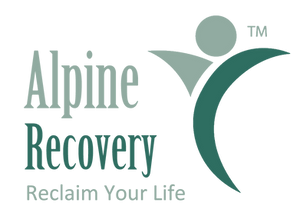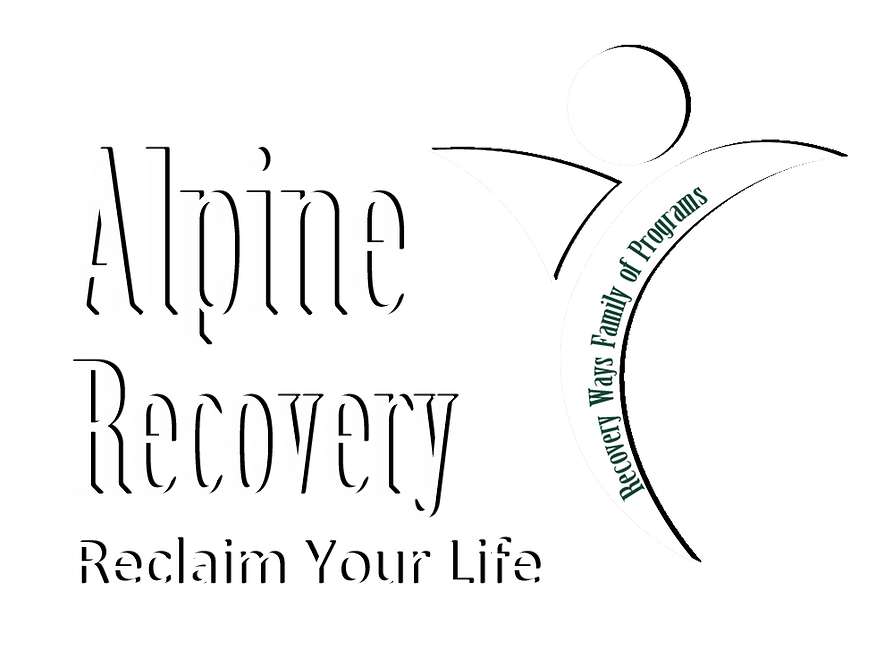Everett Alcohol Treatment
Table of Contents
Alcohol Treatment Options in Everett Washington
In the bustling Puget Sound region, alcohol use disorders affect many adults, with the Washington State Health Care Authority reporting that over 10% of residents need substance use treatment amid stressors like work pressures and isolation. For those seeking everett alcohol treatment, Alpine Recovery stands as a trusted outpatient provider, offering accessible alcohol rehab in Everett, WA, to support immediate recovery starts.
Located at 16404 Smokey Point Boulevard, Suite 109, Arlington, WA–just minutes from Everett–Alpine Recovery provides comprehensive outpatient alcohol treatment in Everett, including assessments, partial hospitalization for structured daily support, and intensive outpatient programs for flexible, ongoing care. Accredited by The Joint Commission, the clinic ensures high-quality, evidence-based services tailored for adults, veterans, and those referred by employers.
Quick intake is available via phone at 360-658-1388 or the online Verify Benefits tool, connecting individuals to local alcohol recovery services and Everett-area substance use programs with empathy and efficiency.
Understanding Alcohol Challenges in the Everett Area
In the heart of Snohomish County, alcohol treatment in Everett, Washington, addresses a pressing community need amid rising substance use concerns. Many residents face barriers to care, but local programs offer pathways to recovery. This overview examines the prevalence of alcohol misuse, contributing factors, and accessible resources, positioning facilities like Alpine Recovery as vital supports for outpatient alcohol treatment in Everett.
Alcohol use disorders affect over 10% of adults in Snohomish County, according to Recovery.com data on Everett resources. Key statistics include:
- More than 5,000 annual emergency visits related to alcohol in the region.
- Higher rates among men aged 25-44, linked to occupational hazards.
- Youth initiation rates exceeding national averages by 15%.
These figures underscore the urgency for effective interventions in the area.
Urban factors exacerbate alcohol challenges in Everett, such as industrial work stress from ports and manufacturing hubs. Long shifts and economic pressures contribute to higher misuse rates, as noted in regional health reports. Community impacts range from family disruptions to increased traffic incidents, yet empathetic support systems are emerging to foster resilience.
Regional disparities in alcohol rehab access highlight the need for centralized options. While urban Everett offers some facilities, rural outskirts like Monroe face longer wait times and limited transport. The following table compares key factors across Puget Sound areas, drawing from Alpine Recovery clinic details and health reports emphasizing 24/7 intake within a 30-mile radius.
| Area | Proximity to Alpine Recovery (miles) | Accredited Outpatient Options | Insurance Verification Speed | Veteran Resources |
|---|---|---|---|---|
| Everett | 10-15 miles from clinic | Full IOP/PHP, medication-assisted | In-house tool, same-day response | Dedicated veteran pathways |
| Arlington | 0 miles | Full range including assessments | Direct intake team handling | Specialized resources on-site |
| Marysville | 5-10 miles | Outpatient referrals coordinated | Streamlined for local providers | Referral integration |
| Lake Stevens | 15-20 miles | Telehealth supplements | Online submission supported | Community support links |
| Monroe | 20-25 miles | Partial hospitalization available | Phone/SMS coordination | Employer/legal veteran focus |
Alpine Recovery bridges these gaps for Everett residents with quick drives to the Arlington clinic and flexible telehealth, ensuring swift access to accredited outpatient alcohol rehab in Everett, WA. In contrast to programs like Lakeside-Milam’s 90-day commitments, Alpine offers tailored durations for faster integration. For those seeking alcohol rehab near Everett, Washington, proximity to veteran resources and efficient verification processes make a difference, complemented by a virtual map on their site for easy navigation toward hopeful recovery paths.
Available Outpatient Services for Alcohol Recovery in Everett
Residents seeking alcohol treatment in Everett, Washington, have access to comprehensive outpatient options through Alpine Recovery, located nearby in Arlington. These programs offer flexible alcohol rehab in Everett, WA, designed to support recovery without disrupting daily routines. From intensive outpatient programs to medication-assisted treatment, services address a spectrum of needs for individuals battling alcohol addiction in the region.
Alpine Recovery’s outpatient alcohol treatment in Everett emphasizes structured yet adaptable care. The Everett IOP for alcohol involves 9-12 hours per week of group and individual therapy sessions, focusing on coping skills, relapse prevention, and peer support. Ideal for those with work commitments, it accommodates shift workers by offering evening and weekend slots. For more intensive needs, the local PHP recovery provides over 20 hours weekly, including daily sessions that mimic inpatient structure while allowing evenings at home. This partial hospitalization suits those transitioning from detox or requiring heightened supervision. Drawing from evidence-based models, these programs boast success rates similar to Evergreen Recovery Centers’ reported 70% completion for IOP participants, fostering long-term sobriety.
Medication-assisted treatment enhances these offerings with options like naltrexone to reduce cravings and support abstinence. Alpine coordinates detox through local partners, ensuring safe withdrawal management without full inpatient stays, contrasting Providence Regional Medical Center Everett’s inpatient focus. This approach empowers clients to maintain stability outpatient.
Veterans benefit from tailored adaptations, including VA-aligned scheduling and trauma-informed therapy, addressing unique service-related challenges. With flexible options aligning with Everett’s industrial workforce, these services promote inclusive, evidence-driven recovery paths.
Key Factors in Choosing Everett Alcohol Treatment
When exploring alcohol treatment in Everett, Washington, local residents face key decisions around costs, insurance coverage, provider credentials, and treatment timelines. These factors can streamline access to effective, accredited programs like those at Alpine Recovery, located nearby in Arlington, which emphasizes verified benefits and quick starts for Puget Sound individuals seeking sustainable recovery.
Costs and Insurance Options
Outpatient alcohol treatment in Everett typically ranges from $5,000 to $15,000 per cycle, depending on program intensity and duration. Most major insurance providers, including those outlined by the Washington State Health Care Authority, cover 80% or more for eligible plans, reducing out-of-pocket expenses for cost-effective local recovery. Low-income options and sliding-scale fees further enhance accessibility, with Alpine Recovery’s in-house verification tool helping confirm coverage swiftly during intake.
Provider Credentials
Reputable alcohol rehab in Everett, WA, requires licensed counselors and adherence to standards like Joint Commission accreditation. This ensures credentialed Everett services deliver evidence-based care, from assessments to detox integration. Alpine Recovery upholds these benchmarks, providing trust through transparent clinical oversight and specialized staff for adults and veterans.
Treatment Timelines and Referrals
Initial assessments for alcohol treatment often begin within 48 hours of contact, allowing prompt entry into outpatient or intensive programs. Employer and legal referrals integrate seamlessly, with coordinated support minimizing delays. Facilities like Alpine Recovery facilitate this process, connecting clients to community resources for immediate, structured care that supports long-term success.
Steps to Begin Alcohol Recovery Near Everett
Starting alcohol treatment in Everett, Washington, can feel overwhelming, but Alpine Recovery simplifies the process with efficient, compassionate support for outpatient alcohol rehab in Everett, WA. Located nearby in Arlington, our team helps residents access quality care quickly, often within 48 hours of initial contact. Whether you’re seeking alcohol rehab in Everett, WA, or exploring outpatient alcohol treatment in Everett, these steps guide you toward starting local recovery.
- Reach Out for Inquiry: Call 360-658-1388 during business hours (Monday-Thursday 9am-6pm, Friday 9am-12pm) or submit our online contact form. This confidential, free initial consult connects you with our intake team to discuss your needs and the Everett intake process.
- Verify Insurance Benefits: Use our Verify Benefits tool on the website to upload your insurance details securely. We handle the verification promptly, ensuring transparency about coverage for services near Everett.
- Schedule Your Assessment: Book a virtual or in-person evaluation at our clinic. This 1-2 hour session reviews your history and goals, drawing from local best practices like those on Recovery.com for timely intakes.
- Create a Personalized Plan: Our counselors collaborate with you to design a tailored treatment roadmap, incorporating intensive outpatient programs (IOP) or partial hospitalization (PHP) based on your situation.
- Begin Treatment: Start your outpatient alcohol treatment in Everett sessions right away, with SMS follow-ups and referral support for veterans, employers, or legal partners to ease the transition.
This streamlined approach reduces barriers, offering reassurance through accreditation and expert guidance. Many clients report feeling supported from day one, paving the way for sustained recovery near Everett.
Your Path to Lasting Recovery in Everett
Choosing alcohol treatment in Everett, Washington, means accessing proven support for sustained Everett recovery. At Alpine Recovery, accredited programs, swift insurance verification, and flexible outpatient alcohol treatment in Everett options ensure quick starts and comprehensive care, including veterans’ resources. Statewide data from the Washington State Health Care Authority shows accessible outpatient services boost long-term success rates by up to 50%.
Take the first step toward alcohol rehab in Everett, WA today. Contact us at 16404 Smokey Point Boulevard, Suite 109, Arlington, WA 98223 or call 360-658-1388 to verify benefits and join local support networks for relapse prevention and empowered living.


















